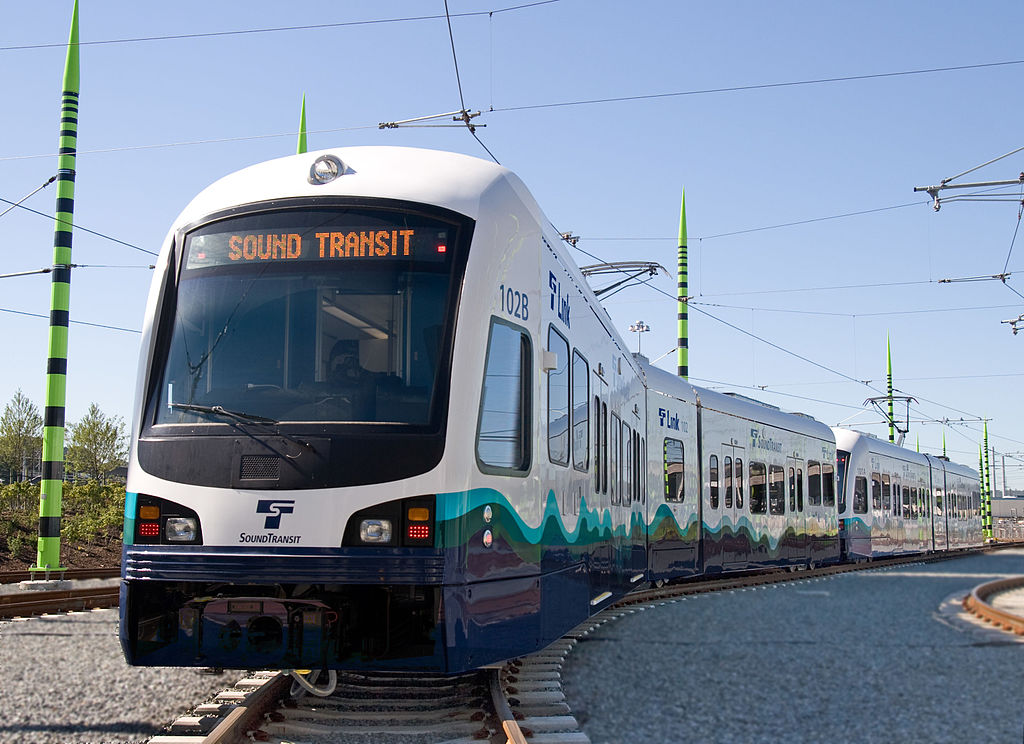
Sound Transit Funding is Again at Risk in Olympia
Funding for Sound Transit projects is again under attack. Several negative bills are up for hearing on Tuesday, Feb. 4, at 3:30 p.m. in the Senate Transportation Committee, and Transportation Choices Coalition and partners must stand up to defend voter-approved plans so that vital Link Light Rail and rapid bus projects are not cut or delayed.
While relief for Washington taxpayers is a real concern — our state as a whole has one of the most regressive tax systems in the country — stripping revenue from essential transit projects will hurt communities, our economy, and our environment. TCC cannot support any legislation that does not identify backfill revenue to keep projects on track.
Here is a rundown of the bills we must stand up against this Tuesday:
SB 6606 — Concerning regional transit authorities
While SB 6606 is sponsored by a host of Democrats seeking tax relief for their constituents, passing the bill would be challenging. Because it repeals parts of the voter-approved Initiative 976, it requires a two-thirds vote. Additionally, though I-976 passed statewide in November, it lost with 54% of the vote in the Sound Transit district. Voters in the Sound Transit district are clear — they want the projects they approved delivered on the timeline they were promised.
What the bill does
- SB 6606 changes the car valuation schedule for the entire 1.1% MVET tax — that’s the total voter-approved MVET tax from both Sound Move and ST3.
- It would move from the schedule approved in 1999 (used currently) to the new schedule, approved in 2006. On the newer schedule, car values depreciate more quickly, and therefore people pay less MVET tax, especially for newer cars.
- However, the bill also further modifies the 2006 schedule to reduce the impact on older cars that would pay more under the newer schedule.
- Sound Transit estimates the total fiscal impact, including bond refinancing, would be ~$2.9 billion.
- The bill does not offer any “backfill” funds or alternate revenue sources for Sound Transit.
- This measure would limit annual motor vehicle license fees to $30, except voter-approved charges; repeal and remove authority to impose certain vehicle taxes and charges; and base vehicle taxes on Kelley Blue Book rather than the current vehicle valuation schedule.
- This bill exempts Pierce County from ST3 taxes, and prevents those same taxes from being imposed again. Any regional transit authority taxes approved by voters after January 1, 2015, that have already been collected from within the boundaries of an “affected county” may be used only for issuing refunds to taxpayers within that county or defeasing bond contracts in order to implement this bill.
- This bill would codify I-976. However, it also stipulates that beginning in July 2020, and each fiscal year thereafter, from the revenue collected on retail sales of vehicles, the state treasurer must transfer sufficient funds from the state general fund to each of the accounts negatively impacted by I-976 to compensate for the reduced revenue in each fiscal year.
- This bill codifies I-976 as passed by the voters of Washington.




